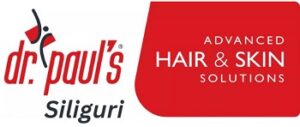Acne & Scar Treatment From Dr. Paul’s Advanced Hair and Skin Solutions
Book Appointment
- Oral Medications:
- Oral antibiotics (such as doxycycline, minocycline, or tetracycline) may be prescribed for moderate to severe acne to reduce inflammation and bacterial growth.
- Oral contraceptives (birth control pills) containing estrogen and progestin can help regulate hormones in females and improve acne in some cases.
- Oral isotretinoin (Accutane) is a potent medication reserved for severe, cystic acne that is resistant to other treatments. It can reduce oil production, prevent acne formation, and improve scarring but requires close monitoring due to potential side effects.
- Chemical Peels:
- Chemical peels involve the application of a chemical solution to the skin, which exfoliates the outer layer and stimulates collagen production, resulting in smoother skin and reduced appearance of acne scars. Different types of peels, such as glycolic acid, salicylic acid, or trichloroacetic acid (TCA), may be used depending on the severity of the scarring.
- Laser Therapy:
- Laser treatments, including fractional laser therapy, pulsed dye laser (PDL), and ablative laser resurfacing, can help improve the appearance of acne scars by stimulating collagen production and remodeling the skin’s surface.
- Microneedling:
- Microneedling, also known as collagen induction therapy, involves using a device with fine needles to create controlled micro-injuries in the skin, stimulating collagen and elastin production. This can improve skin texture and reduce the appearance of acne scars.
- Dermal Fillers:
- Injectable dermal fillers, such as hyaluronic acid or collagen-based fillers, can be used to fill in depressed acne scars, temporarily improving their appearance.
- Subcision:
- Subcision is a surgical procedure in which a needle is inserted beneath the skin to break up fibrous scar tissue, allowing depressed scars to elevate and become less noticeable









